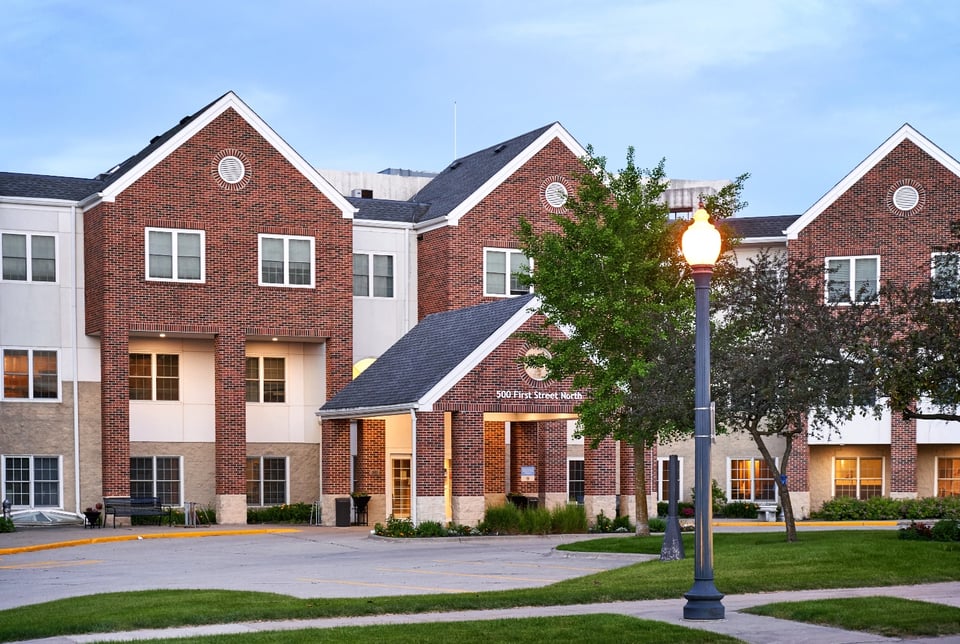As we age, so do our eyes and, particularly for people over the age of 65, low vision and blindness can become a scary reality. If you have taken on the role of caretaker for a parent, vision loss may be one of the difficulties he or she faces in older age. Read on to learn important information about age-related vision loss symptoms and safety practices, as well as when it’s time to enlist an extra layer of support in the form of home care to optimize your parent’s independence and enhance quality of life.
Most Common Types of Age-Related Vision Loss
Different eye conditions affect the ability to see and function in different ways, and the risk for vision problems becomes more prevalent with age. According to the National Eye Institute, the majority of seniors have at least one, or a combination, of the four most common age-related eye diseases:
- Age-related macular degeneration: the leading cause of blindness among seniors, causes central vision loss. Symptoms include gradual, spotty loss of detail vision (dry macular degeneration); sudden and severe loss of central vision (wet macular degeneration); and a need for more light.
- Glaucoma: damages to the optic nerve from abnormally high eye pressure or poor circulation. Symptoms include subtle loss of contrast, difficulty driving at night, and loss of peripheral vision (late-stage glaucoma).
- Diabetic retinopathy: one of the long-term complications of advanced or long-term diabetes caused by hemorrhages in the retina. Symptoms include blurred vision and near vision distortion, such as difficulty reading.
- Cataracts: diminish the sharpness of detail, resulting in hazy vision, particularly in glaring light. Symptoms include hazy vision, trouble distinguishing colors, and increased sensitivity to glare where light scatters and appears like a halo.
Become an advocate for your parent by making sure they receive appropriate vision care and treatment of age-related eye diseases. If you notice significant changes in a parent’s ability to see clearly, gently talk to him or her about scheduling a routine eye exam.
5 Safety Tips for Seniors Facing Vision Loss
From the loss of the ability to enjoy everyday activities, such as watching television and reading the newspaper, to restricted mobility and increased risk for falls and fractures; vision loss can affect both quality of life and the personal safety of your parent. Certain assistive devices are designed to restore quality for the visually impaired. If your parent suffers from vision loss, talk to him or her about the following:
- Magnifiers and "readers"
- Books on tape and other audio programs
- Computer software that makes it easier for those with poor vision to use
In addition to talking to your parent about the use of assistive devices, the American Foundation for the Blind recommends all seniors experiencing any degree of vision loss implement the following safety tips to prevent worsened vision and the risk of fall or injury within the home:
- Install task lights in cabinets, under stove hoods and other dark areas.
- Only read or work in a well lit room.
- Arrange furniture with a clear pathway.
- Install shower and tub grab bars in the bathroom.
- Free lawns and gardens of clutter and keep pathways well lit at night.
Talk to Your Parent about the Next Step
The truth is, severe vision loss is not a normal part of aging. If you notice changes in your parent’s ability to live freely and safely due to vision loss, it may be time to begin the conversation about home care services. Consider sharing the responsibility of caregiving to better assist your loved one with daily activities. WesleyLife At Home provides a number of home-based services designed to enhance quality of life and support the independence of the visually impaired through ongoing or day-to-day support in the following ways:
- Companionship
- Assistance
- Meal preparation
- Medical administration and physical preparation
- Transportation to and from appointments and social events
- Home safety assessments





